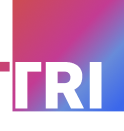Ethical Growth Tips for Marketing in Healthcare Industry
- TRIdigital

- Jun 10, 2024
- 6 min read
Updated: Jun 12, 2025

Marketing in the healthcare industry is all about helping people find the care they need. This blog is here to show healthcare professionals how marketing can grow their business and build patient trust. At TRIdigital Marketing, we understand the challenges you face. For instance, reaching new patients while staying ethical isn’t always easy. That’s why we’ll share simple strategies you can use to stand out. In other words, we’ll explain how to connect with patients and grow your practice. So, if you’re ready to make a bigger impact, keep reading to learn more.
Why Marketing Matters in Healthcare

Marketing in the healthcare industry helps people find the care they need at the right time. For instance, patients often look online to discover services, and marketing ensures your practice stands out. In other words, it creates a bridge between healthcare providers and the people searching for them. Without it, many patients might not know where to turn. So, effective marketing makes a real difference, especially with SEO services in Dallas, TX guiding patients to your practice.
In addition, marketing builds trust by sharing helpful information and showing patients you care. For instance, clear communication about your services or values makes patients feel confident. Above all, it helps your practice grow while staying connected to the community, supported by effective strategies like MSP sales.
Effective Strategies for Marketing in the Healthcare Industry

Marketing in the healthcare industry is about helping people find care and feel supported. .By using smart and simple strategies, you can connect with patients, build trust, and make your practice grow
Content Marketing
Content marketing shares helpful information and shows patients you care:
Educational Blogs: Write easy-to-read articles about health tips or common questions patients might have, supported by MSP content marketing.
Video Tutorials: Show simple steps for using your services or explain treatments so they’re easy to understand.
Infographics: Share fun and colorful charts or pictures with helpful health facts.
Social Media Marketing in Healthcare
Social media helps you stay in touch with patients and keep them engaged:
Post Regular Updates: Share news about your practice or reminders about healthy habits.
Engage with Comments: Answer questions and chat with people to build trust and friendships.
Share Patient Stories: Show real-life examples (with permission) to inspire and connect with others.
Email Marketing for Patient Engagement
Emails are a great way to remind and connect with your patients:
Appointment Reminders: Help patients remember their visits with a quick and friendly note.
Health Tips: Share easy advice about staying healthy, like washing hands or getting enough sleep.
Practice Newsletters: Let patients know about fun events, new services, or exciting updates.
Above all, these strategies make marketing in the healthcare industry helpful and caring. In other words, you can make patients feel special and grow your practice at the same time. So, start small, and you’ll see big results.
The Role of Technology in Healthcare Marketing

Technology is super important for making marketing in the healthcare industry better and easier for patients. It also enhances strategies like inbound marketing MSP, helping reach more people, offer better care, and build strong connections with them. Below are some ways technology is making a difference in healthcare marketing.
Telehealth Services and Marketing
Telehealth lets patients see doctors online, which saves time and makes visits more comfortable. Marketing for telehealth shows people how they can get care without leaving their homes. For instance, ads can explain how to set up a virtual appointment or what to expect. So, telehealth marketing helps people feel healthcare is easy and always close by.
Data Analytics in Healthcare Marketing
Data helps healthcare providers learn what their patients want and need. For example, feedback and reviews can show what patients like most. In addition, data helps make ads and campaigns work better by focusing on the right group of people. A trusted MSP marketing firm makes healthcare marketing smarter and more useful.
Personalized Patient Experiences
Personalized marketing makes each patient feel special and cared for:
Customized Emails: Send reminders or health tips based on what a patient has done before.
Targeted Ads: Show helpful ads, like healthy living ideas, that match what the patient needs.
Social Media Engagement
Social media keeps healthcare providers connected with patients in fun and easy ways:
Live Q&A Sessions: Let patients ask questions and learn during live online events.
Health Campaigns: Share challenges or activities to get people involved and staying healthy.
It’s also a great way for healthcare providers to collaborate through platforms like MSP networks, ensuring broader outreach and engagement.
Building Trust Through Ethical Marketing Practices

Building trust is one of the most important parts of marketing in the healthcare industry. Patients want to feel safe and confident when choosing a healthcare provider. Ethical marketing led by a reliable MSP Marketing company is the best way to do this. It shows patients that you care about them, not just their money. So, it’s about being honest, clear, and helpful. Above all, ethical marketing builds long-lasting relationships with patients.
Ethical marketing means doing the right thing, even in advertisements and campaigns. For instance, MSP marketing, like TRIdigital Marketing, focuses on being truthful and caring in their approach. When patients see honest messages, they trust your practice more.
Key Ways to Build Trust with Ethical Marketing
Clear Information: Explain services, costs, and benefits without hiding details, supported by strategies like MSP SEO.
Real Patient Stories: Share testimonials (with permission) to show real experiences.
Transparency: Be upfront about what patients can expect from your care.
No Overpromising: Don’t make claims about treatments or results that aren’t guaranteed.
How Ethical Marketing Helps Patients
Creates Confidence: Patients feel safer knowing they can trust your words.
Builds Loyalty: Honest marketing makes people more likely to return for future care.
Improves Communication: Patients know you’re there to help, not just sell services.
In other words, ethical marketing makes patients feel respected and valued, supported by effective MSP marketing tools. Therefore, focusing on trust and honesty will help your practice grow and stay strong.
Key Takeaway
Marketing in the healthcare industry is about building trust, connecting with patients, and growing your practice. Using strategies like ethical marketing, social media, and personalized outreach can make a big difference. For instance, clear and honest communication helps patients feel confident and valued. Above all, keeping the focus on helping others makes your marketing more meaningful.
If you’re ready to improve your healthcare marketing, TRIdigital Marketing is here to help. We specialize in making marketing easy and effective for healthcare providers. So, don’t wait—contact us today to start growing your practice and making a lasting impact.
FAQs
1. Why is marketing in the healthcare industry important?
Marketing in the healthcare industry helps patients find the care they need. It also helps doctors and clinics grow by connecting with people who need their services.
2. How does content marketing help in healthcare?
Content marketing shares helpful information like tips, videos, and fun charts. For instance, it can teach people about staying healthy or explain how a treatment works. So, it helps patients trust and understand their doctors.
3. How does social media help healthcare providers?
Social media helps doctors and clinics talk to patients online. For example, they can share updates, answer questions, or post stories to show how they help people. Above all, it’s a great way to stay connected.
4. How can email marketing help patients?
Emails remind patients about visits or share health tips to keep them safe. In addition, newsletters tell patients about new services or fun events happening at the clinic.
5. How does technology make healthcare marketing better?
Technology, like online doctor visits and data, makes healthcare marketing smarter. For instance, it helps doctors know what patients need and makes it easy to reach more people.
6. Why is being honest important in healthcare marketing?
Being honest, or ethical, makes patients trust their doctor. For example, if a doctor promises only what they can deliver, patients feel safe. So, honesty builds confidence and keeps patients happy.
7. What are some good ways to market ethically?
Some good ways include explaining treatments clearly, sharing real stories (with permission), and never making fake promises. In other words, always tell the truth.
8. How does data help with healthcare marketing?
Data shows doctors what patients want. For instance, it can tell them which treatments people like most. So, it helps doctors create better ads that reach the right people.
9. What is telehealth marketing, and why is it helpful?
Telehealth marketing shows people how to see a doctor online. For example, ads can explain how to set up a video visit. So, it’s helpful because it makes care easy and fast.
10. How can TRIdigital Marketing help with healthcare marketing?
TRIdigital Marketing knows how to make healthcare marketing easy and honest. They help doctors build trust with patients, share useful tips, and grow their clinics. Above all, they make sure everyone feels cared for.



